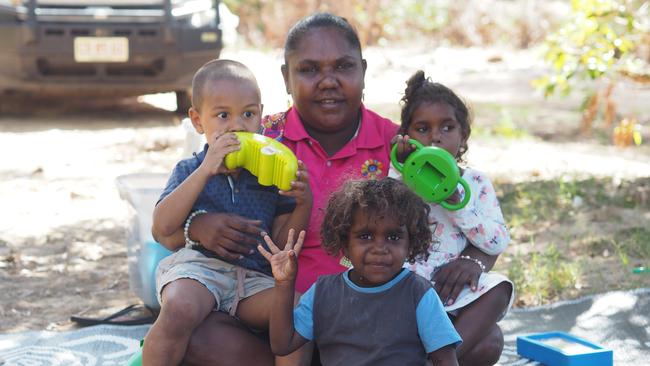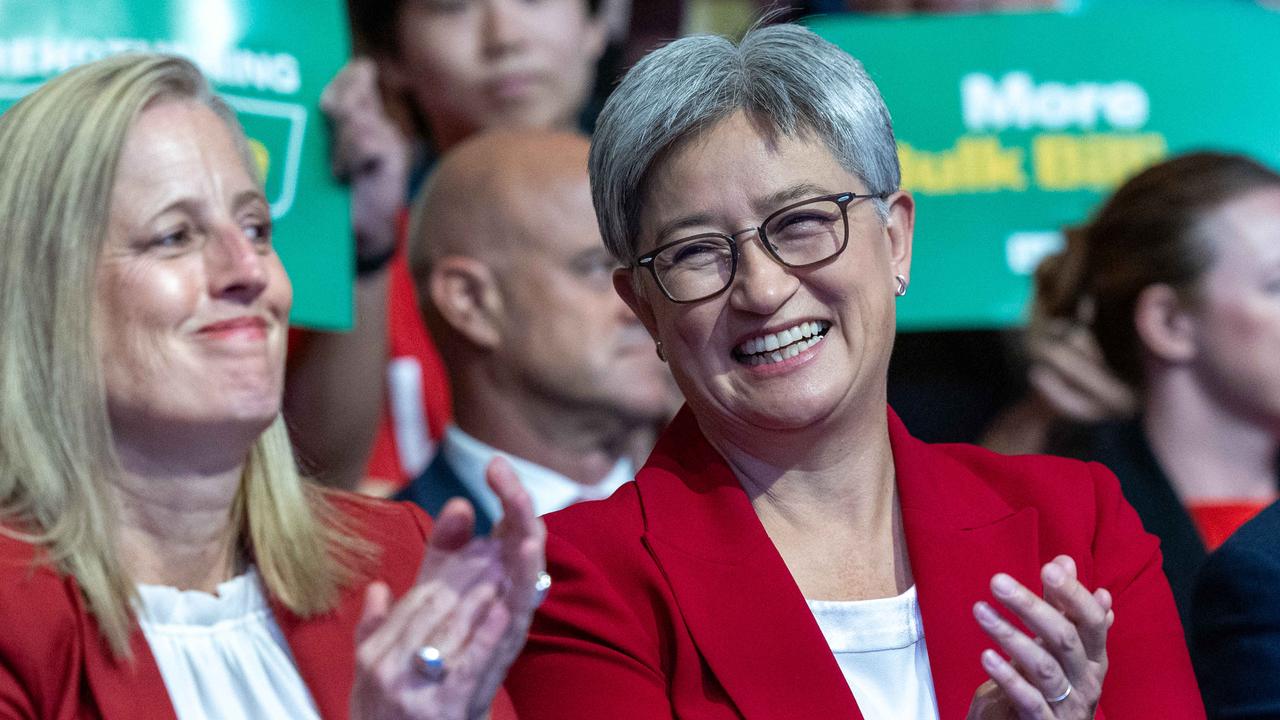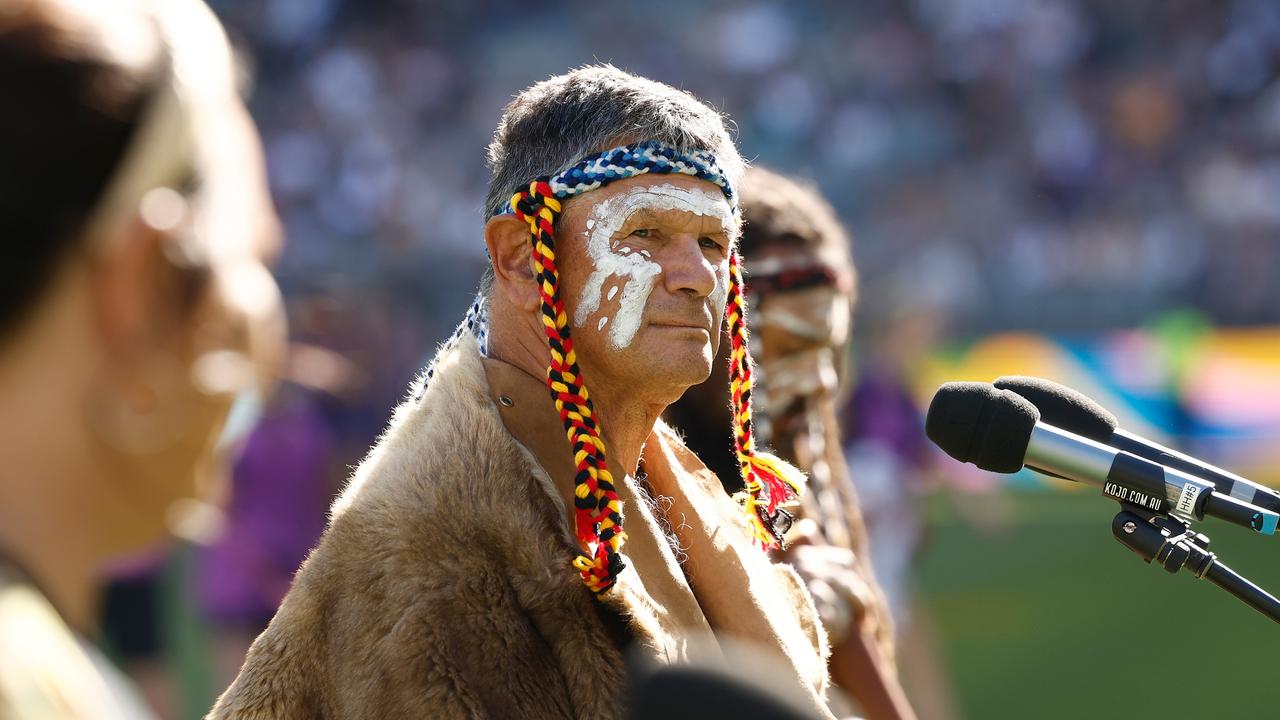The Australian’s Australian of the Year: Turning a page on limited life trajectories for Borroloola community kids
The women of Borroloola in the Gulf of Carpentaria are transforming their community. and their achievement makes them the first community nomination for The Australian’s Australian of the Year.

The women of Borroloola in the Gulf of Carpentaria are transforming their community.
They began more than a decade ago by establishing a mobile children’s library. With support of the charitable Moriarty Foundation, they took a simple idea of providing families with children’s picture books and turned it into an award-winning early childhood education program that prepares local Aboriginal children for school as never before.
The women created jobs for themselves at the same time, studying and qualifying as early childhood educators so they could run the program – Indi Kindi – themselves.
They deliver a curriculum of rich outdoor play and learning on country that is literally altering life trajectories for children in a community ranked the fifth most disadvantaged in Australia.
The women’s achievement makes them the first community nomination for The Australian’s Australian of the Year.
How does early childhood education change lives? The science of early childhood tells us it is possible to accurately measure if a six-year-old is ready for school by looking at development in five domains: physical, cognitive, social, emotional and language.
Children who are developmentally behind in the year they start school tend to have more struggles at school and beyond.
Before Indi Kindi started in 2012, the signs in Borroloola were bleak. In their first year of school, 73.7 per cent of local children were assessed as vulnerable in one or more of the five domains. As Indi Kindi gained momentum, this fell to 41.7 per cent of Borroloola’s year 1 students in 2021. And the percentage of year 1 children assessed as vulnerable in two or more domains in Borroloola fell from 41.7 per cent to 25 per cent since Indi Kindi started.
Almost all of the children at Borroloola are Indigenous.
This progress is reason for hope on its own, but it is increasingly attracting the attention of educators across the nation as they face a serious problem. That is because Borroloola is the exception in a national crisis in early development for Indigenous children. Australia-wide, the percentage of Aboriginal and Torres Strait Islander children who are developmentally behind when they start year 1 is rising.
The Indi Kindi educators’ humility could be one reason why their work is not yet commonwealth policy. They shy away from telling others what to do, but Borroloola women including Deandra McDinny have recently begun to speak with confidence about what has worked for them.
“It is my privilege to come to work every day and be part of a kid’s life,” Ms McDinny has said.
The women of Borroloola are inspiring each other beyond Indi Kindi. One early childhood education worker joined the management of the local women’s shelter, others have moved on to higher paid jobs, which has made room for new staff at Indi Kindi.
Currently, three of the women running Indi Kindi are qualified early childhood educators with a certificate 3 from Batchelor Institute south of Darwin. Four other local women employed at the Borroloola Indi Kindi are studying for the qualification as they work. They are with the children each morning; in the afternoons they study using Moriarty Foundation computers and resources.
Those who have followed the success of Indi Kindi say they have seen something else extraordinary. The women have become community leaders. Locals defer to them. Younger women ask for advice. Some want to be like them.
The series of events has had an energising effect. When the Borroloola swimming pool closed down primarily from a lack of lifeguards a year ago, Indi Kindi educator Annika Rory stepped up and became a qualified pool lifeguard to ensure it could reopen.




To join the conversation, please log in. Don't have an account? Register
Join the conversation, you are commenting as Logout